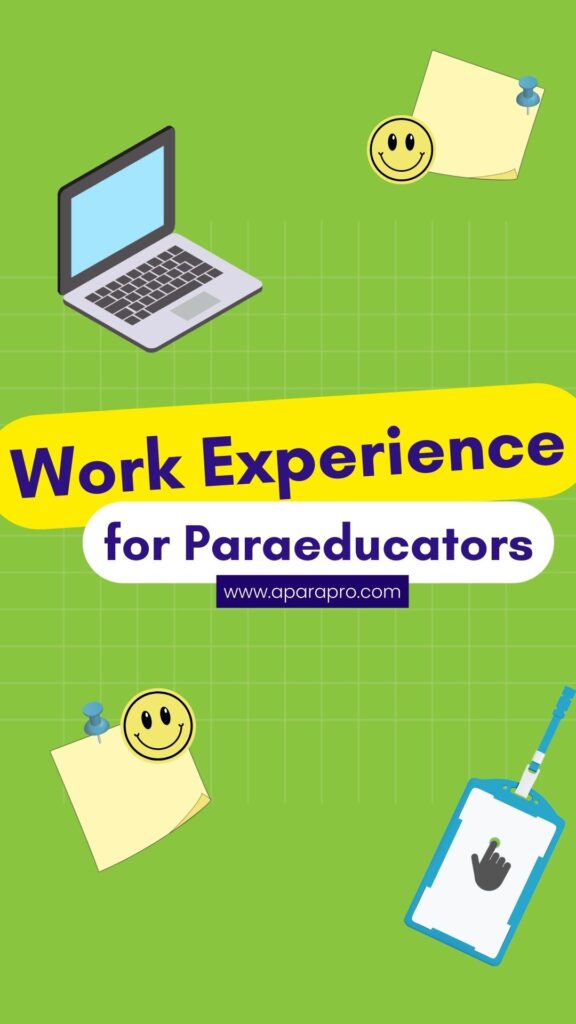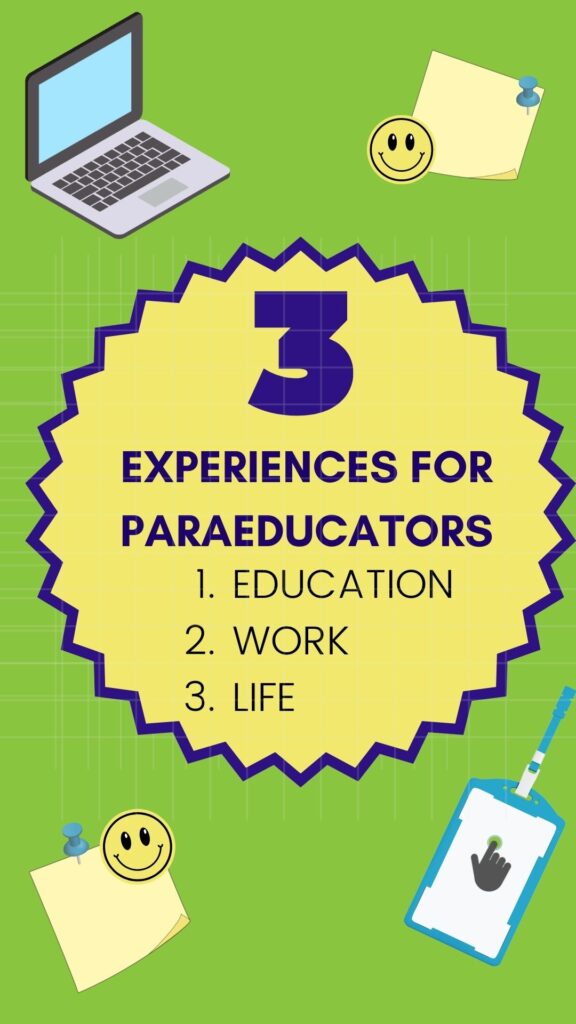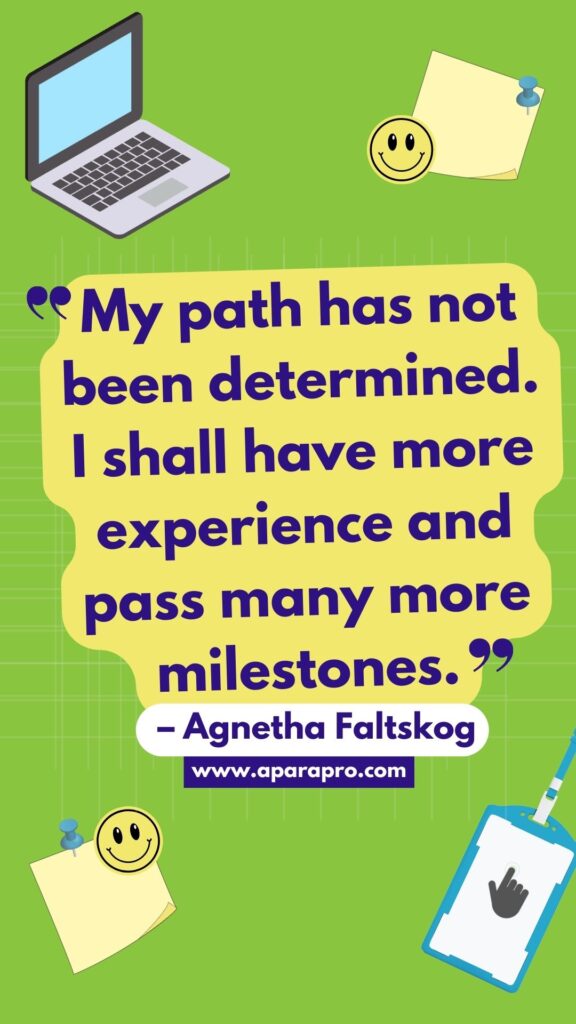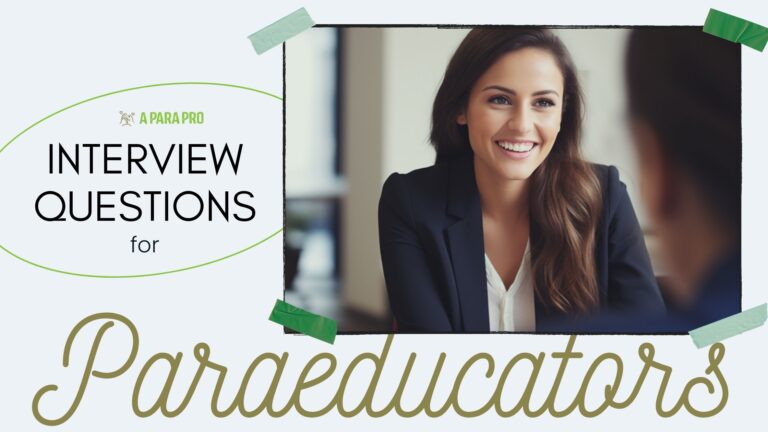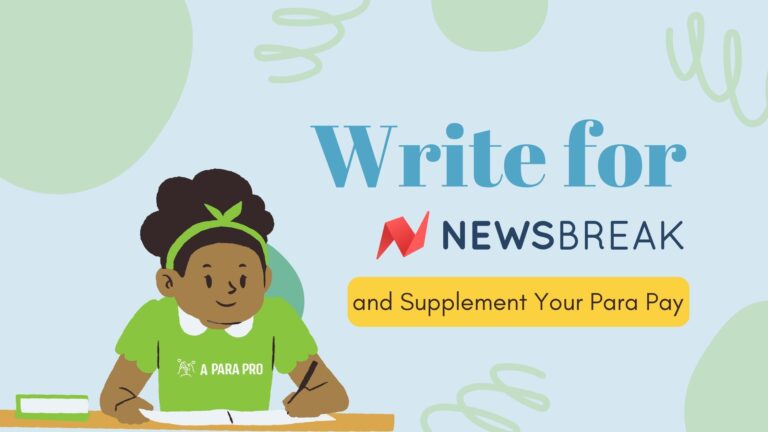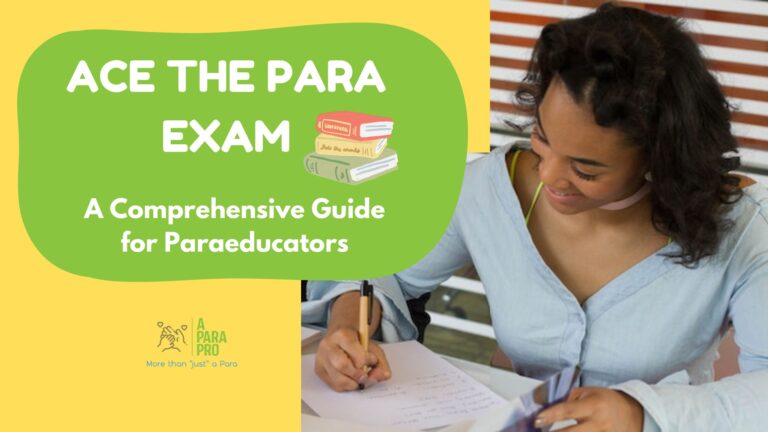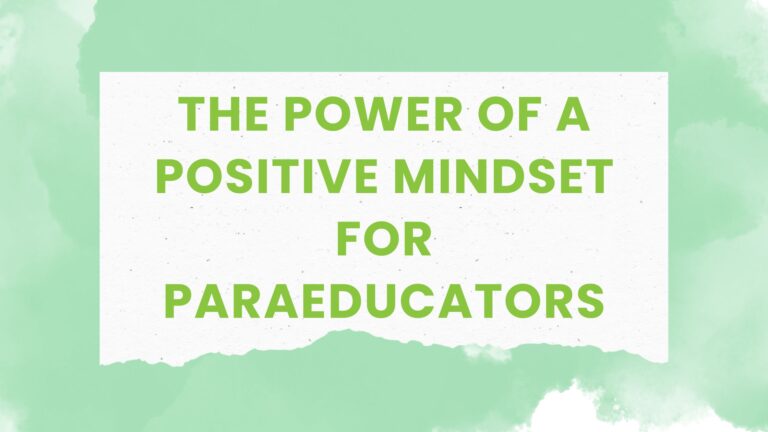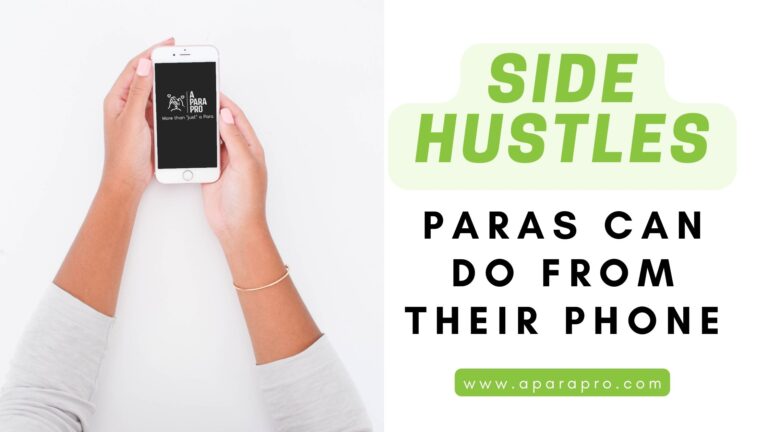What Kind of Experience Do You Need to Be a Paraeducator?
Are you considering a career as a paraeducator and wondering what kind of experience you need? It's a great question, as the requirements can vary depending on the employer and the specific role. Let's explore the typical expectations and qualifications when it comes to experience for paraeducators.
The Basics: Education and Experience
To become a paraeducator, you generally need to have a high school diploma or equivalent. Additionally, some experience working with children or individuals with disabilities is usually required. However, keep in mind that each employer and school district may have their own specific requirements. So it's best to check with them directly to get accurate information.
Work Experience: A Valuable Asset
Work experience is an important factor for paraeducator positions. The exact amount and type of work experience needed can vary, depending on the employer and the specific job requirements. Some employers may prefer candidates with several years of relevant experience. While others may be open to hiring candidates with less experience if they possess the necessary skills and qualities. It's always a good idea to inquire about the specific work experience expectations from the employer or school district you are interested in.
Life Experience: A Bonus Point
While not a specific requirement, life experience can be beneficial when pursuing a paraeducator role. Although employers primarily focus on education, training, and work experience, having life experience working with or caring for individuals with disabilities or children can give you a competitive edge. It showcases your understanding and empathy, which are highly valued qualities in this field. However, it's important to note that the most crucial aspect of becoming a paraeducator is having the necessary skills, experience, and qualifications relevant to the role.
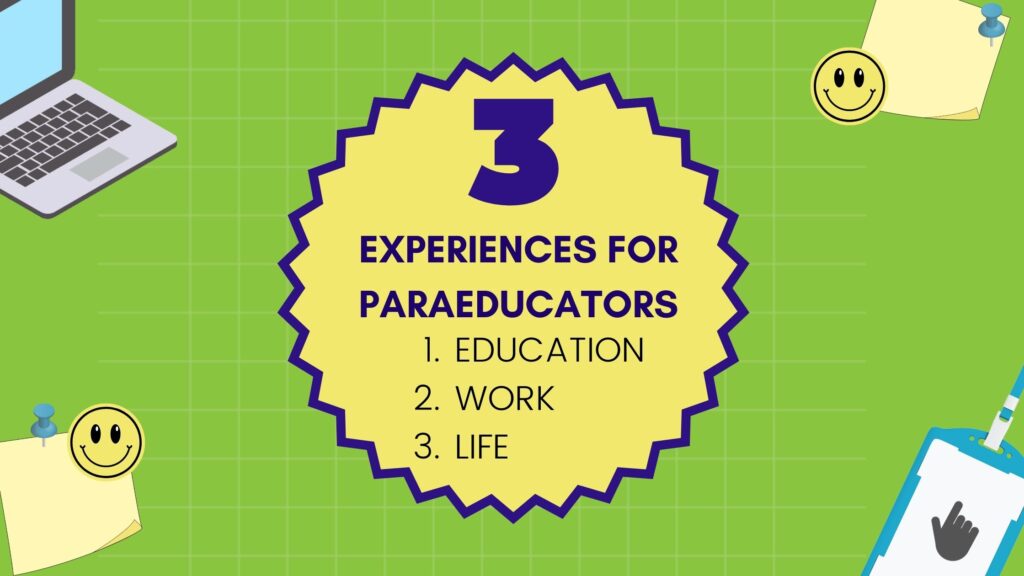
Employers' Preferences
When it comes to paraeducator positions, employers generally prefer candidates with experience that aligns with the demands of the role. Some of the experiences employers may look for include:
- Experience working in schools or with children in other settings
- Experience working with individuals with disabilities, such as autism or developmental delays
- Experience providing support to students or teachers in an educational setting
- Experience implementing behavior plans or other interventions
- Experience working with assistive technology or other specialized equipment
In addition to these experiences, employers may also value candidates who have completed relevant education or training, such as a degree or certificate program in education, special education, or a related field. The specific qualifications and experiences employers seek may vary based on the employer, the role, and the students' needs.
What is Considered Paraeducator Experience?
When it comes to paraeducator experience, there are various types of relevant roles and responsibilities that can contribute to your qualifications. While the specific requirements may vary depending on the employer and the job description, here are some common examples of what is considered paraeducator experience:
Teacher's Aide or Classroom Assistant
Working as a teacher's aide or classroom assistant is a valuable form of paraeducator experience. In this role, you provide support to teachers in classroom management, lesson preparation, and individual student assistance. This experience helps you develop a deep understanding of classroom dynamics and strategies for supporting students' educational needs.
Special Education Paraprofessional
Experience as a special education paraprofessional is highly relevant for paraeducator positions that involve working with students with disabilities. In this role, you provide individualized support to students with special needs, assist with implementing individualized education plans (IEPs), and collaborate with special education teachers and therapists. This experience demonstrates your ability to meet the unique requirements of students with diverse learning needs.
Behavioral Support Assistant
Working as a behavioral support assistant is another form of paraeducator experience that is particularly valuable for positions focused on behavior management and intervention. In this role, you support students with challenging behaviors, implement behavior plans, and collaborate with teachers and specialists to create a positive and supportive learning environment.
Tutor or Academic Support Provider
Experience as a tutor or academic support provider can also be considered paraeducator experience. In this role, you work closely with students to provide individual or small-group instruction, assist with homework and assignments, and offer academic guidance. This experience highlights your ability to support students' academic growth and progress.
Experience in Other Educational Settings
While the above roles are common forms of paraeducator experience, it's important to note that experience in other educational settings can also be relevant. This can include working in after-school programs, summer camps, or community organizations focused on education and youth development. Such experiences showcase your commitment to education and your ability to engage and support students outside of a traditional classroom setting.
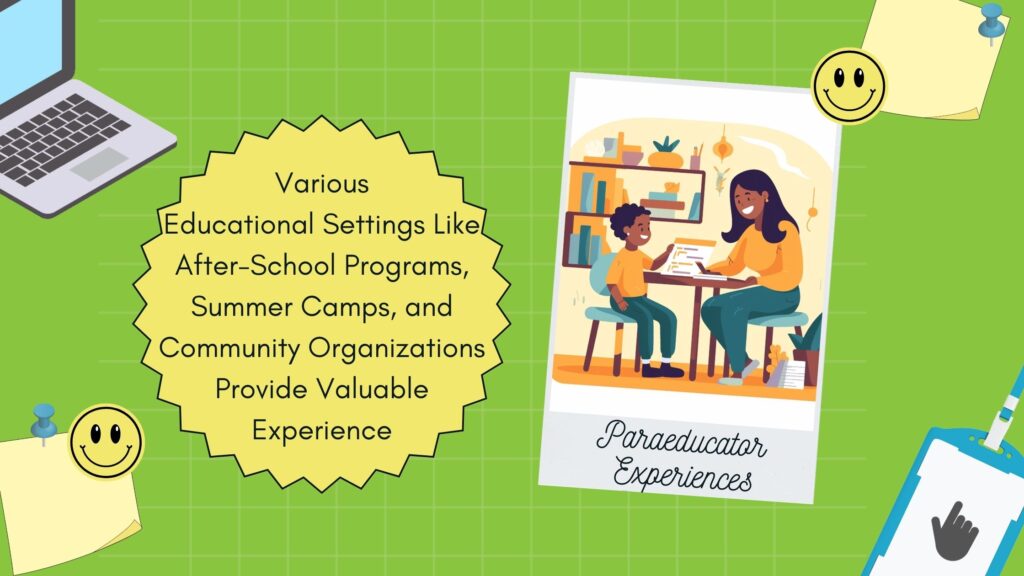
Keep in mind that these are just a few examples of what is considered paraeducator experience. The key is to demonstrate your ability to support students, collaborate with teachers and specialists, and create a positive and inclusive learning environment. When applying for paraeducator positions, highlight the relevant experience you have gained and emphasize how it aligns with the specific requirements of the role.
When pursuing a career as a paraeducator, having the right experience can significantly enhance your chances of success.
While employers typically require a high school diploma or equivalent and some experience working with children or individuals with disabilities, it's essential to research specific requirements from each employer or school district. Work experience, particularly in educational or disability-related settings, is highly valued. Additionally, life experience can be an added bonus that showcases your understanding and empathy. However, the most important factor in becoming a paraeducator is possessing the necessary skills, qualifications, and experience that align with the role's demands.

To position yourself as a strong candidate, consider gaining relevant work experience by volunteering or working in educational or disability-related settings. This hands-on experience will not only enhance your resume but also provide valuable insights into the field of paraeducation. Remember, employers prefer candidates who can effectively support students and teachers, implement behavior plans, and work with assistive technology or specialized equipment. Additionally, pursuing further education or training in education, special education, or related fields can also boost your qualifications and make you stand out from the competition.
Ready to find your dream paraeducator job?
SIGN UP FOR MY – BECOMING A PARAEDUCATOR BLUEPRINT: THE ULTIMATE CHECKLIST FOR BECOMING A PARAEDUCATOR – TODAY!

This comprehensive checklist covers all the essential steps aspiring paraeducators like you, need to take in order to pass the paraeducator exam, get licensed, and land the desired position to start your career as a paraeducator!
TAKE THE FIRST STEP TOWARD ACHIEVING YOUR GOAL OF BECOMING A PARAEDUCATOR!
If you're passionate about making a positive impact on students' lives as a paraeducator, it's time to take action. Start by researching the specific requirements and expectations of employers or school districts in your area. Seek opportunities to gain relevant work experience, whether through volunteering, internships, or part-time positions. Consider pursuing further education or training to enhance your qualifications. Remember, each step you take brings you closer to achieving your goal of becoming a successful paraeducator. Good luck on your journey to becoming a paraeducator and making a meaningful difference in the lives of students!
PIN FOR LATER
